April 3rd, 2024
In this meeting, participants assessed and discussed the pervasive challenges impacting gender justice movements globally. The meeting featured discussions on obstacles that included the rising right-wing ideologies and public policies that undermine civil society and human rights.
Want to be a part of these conversations? Learn more.
Use the arrows in the bottom right corner to delve deeper into notes shared. Hover to pause and read
Notes from the Conversation
Key challenges facing the gender justice movement discussed
- Participants noted the significant threat posed by the ascendancy of right-wing governments and ideologies, which often result in restrictive policies that target and dismantle the frameworks supporting gender justice and civil liberties.
- It was highlighted that financial resources are becoming increasingly scarce, complicating the operational capabilities of NGOs and civil society organizations.
- This scarcity is juxtaposed with a shift in donor behavior—some donors are striving for greater inclusivity and flexibility in funding, while others are becoming more controlling, imposing stringent restrictions on how funds are used.
- A critical issue raised was the closing of civic spaces, both physically and digitally.
- Participants discussed how international bodies and conferences are becoming less accessible to grassroots activists, either through cost-prohibitive measures or through policies that restrict digital participation, which stifles the diversity of voices in critical debates.
- The spread of misinformation and the rise in online violence were identified as significant barriers to fostering a supportive environment for gender justice.
- This digital antagonism not only distorts public discourse but also directly threatens activists’ safety and mental health.
- Discussions also covered the systemic nature of discrimination within legal and political frameworks, particularly concerning immigration and asylum policies in Europe, which are often imbued with racist and patriarchal biases that further marginalize vulnerable populations.
- A broader geopolitical shift toward authoritarianism has led to the co-optation of movement language and strategies by regressive forces, aiming to consolidate power and suppress dissent.
- This global trend underscores the need for a nuanced understanding of political dynamics to effectively counteract these developments.
- Participants brought attention to the importance of recognizing and documenting effective philanthropic practices to encourage replication to push against the anti-gender movement.
- Participants discussed the challenges related to donor restrictions that limit the scope of projects by focusing too narrowly on specific themes For example, funding tax justice without recognizing the interconnectedness with other critical issues such as gender and climate justice. This lack of intersectionality in funders’ portfolios makes it difficult for organizations to address complex societal challenges comprehensively.
How participants are navigating these challenges
- Facilitating peer-to-peer knowledge sharing to gain inspiration and strength from the group’s collective wisdom.
- Compiling experiences and knowledge into accessible publications or campaigns for raising awareness and mobilizing support.
- Engaging in conferences to broaden networks, exchange ideas, and incorporate diverse insights into their work.
- Supporting Pooled Fund that serve the marginalized, acknowledging that they can be experiments to relay data for traditional funders to change their long-term practices.
- Giving core, long-term, and flexible funding with the availability of emergency grants for urgent needs.
- Providing dual support in the form of financial resources and technical assistance to enhance the advocacy and operational capabilities of gender-focused groups, including enabling access to climate funds.
- Providing technical assistance to gender-focused groups to enable access to climate funds, acknowledging the intersection of gender justice and environmental issues.
- Utilizing open letters as a tool to publicly address issues, advocate for change, and influence policy.
- Conducting funder briefings to educate on critical issues, breaking down silos and promoting a more integrated approach to funding and support.
- Identifying election years and major international forums as opportunities for advocacy and policy influence.
- Crafting communication strategies and campaigns to counter the co-optation of language by the right wing, calling out and challenging these practices.
- Compiling experiences and knowledge into publications or campaigns that are accessible to raise awareness and/or mobilize support.
- Pushing for organizational changes that reflect gender justice principles, such as equitable decision-making and addressing power imbalances within the organization.
- Redefining impact metrics to better reflect the values and goals of the gender justice movement.
Events GJI participants are attending
- Women Now For Development:
- will be there talking about feminist responses to crisis with the example of the earthquake in Turkey and Syria.
- Channel Foundation
- Women’s Funding Network
- JASS
- On a panel on the thirteenth
- Thinking about UN as a space and tendency to drown out voices and the need for numbers and support on a short notice if there is a situation that warrants it. Invitation to stay in touch in case that kind of support is needed.
- XOESE
- Women Win
- Prospera Network
Reach out to Hana if you want to be connected to any of the above!
- Safe Passage
- Grassroots International:
- Organizing a session on Palestine
- Fenomenal Funds
- Astrea Foundation
- XOESE
- Alliance Magazine
- They are potentially not attending but are doing a coverage so if anyone would like to feature their thoughts, they can reach out (Hana can coordinate introductions)
- Women First
- Fondo Semillas
- Holding 3 sessions
- Prospera Network x EDGE
- Holding a lunch on April 26th, email Hana for details
Reach out to Hana if you would like to connect with any of the abvoe!
- USH
- S.A.F.E
- Alliance Magazine
- They are potentially not attending but are doing a coverage so if anyone would like to feature their thoughts, they can reach out (Hana can coordinate introductions)
Reach out to Hana if you want to connect with any of the above!
Use this document to let others know where you will be + what you are planning.
Links:
Reading Resources:
March 5th, 2024
To kick off the Gender Justice Initiative for 2024, the group met to share priorities for Gender Justice, get to know the new co-chairs and share more on events they plan to attend.
Want to be a part of these conversations? Learn more.
Notes from the Conversation
Priorities for Gender Justice from participants
- It’s important that we continue to talk about what gender justice is. There are divisions, at least here in Mexico, in the movement. Clarifying conversations are necessary, especially in the spaces where we talk about resources.It’s not enough just to push for more resources to work on gender justice, but we also have to think about how resources move and who gets the money and how we respond to blind spots. For example, formerly incarcerated women have remained at the margins of funding
- Funding the movements’ and organizations’ financial autonomy through flexible funding
- Disrupting relationship with money that causes competition and being more collaborative
- advancing gender justice within that model and participatory community-led decision-making. Additionally for me a priority is removing silos with gender justice and environmental justice and getting to collective action on extractive capitalism
- In the European context right now, a lot of funding is leaving Europe. There are some very dire situations in Europe including fascists being elected
- Money is following trends, funders need to stop shifting money flows based on trends and commit to multi-year funding
- Future of the Middle East seems to be highly militarized. We cannot separate any discussion on feminism, militarization or even climate
- Building up communities through feminist frameworks to battle state-based violence
- An intersectional way of understanding gender with LGBTQI inclusion, sexual orientation, gender identity and expression and sex characteristics. As well as explore other ways to expand practical knowledge of gender and its implementation, opening gender justice funding not only for women and men but also non binary people and trans people in general
- How feminism also includes cis men. In particular, for example, migrants from the global south facing different kinds of barriers. Exploring what a feminist politics might look like with that type of inclusion
- Work together and think together around the interconnectedness of the root causes of injustices and inequalities that manifests on gender and gender queer bodies
- Intersections of trade, financial systems, gender, climate, that is where the power lies and where we can change.
- Feminist trade: How does it look like? What does that mean? What kind of trade system do we envision?
- Moving resources to the grassroots, for intersectional feminist work particularly with a focus on the global south
- Making sure grants end up in the hands of women
- Examining how feminist issues within the global north actually disproportionately affect migrant or non-citizen women and gender non-binary people. Seeing how the rise of misogyny can be connected with the issue of migration and the hardening of borders
- At least in the case of Mexico, but not exclusively, women are being used by men in power to keep doing what they do and maintaining the status quo. How can we support women in power to have autonomy, agency, and an agenda that promotes and keeps changing the system?
More on the co-chairs
I have been at JASS for a year and my role is resource mobilization director. JASS is a feminist movement building organization rooted and led from the majority world. JASS thinks through solidarity and urgency, we hold conversations around resourcing but also conversations around how the root causes of injustices like authoritarianism and fascism are interconnected.
I’m excited to work with this group in a more intentional way alongside Massan, and the EDGE team.
In this group, to a large degree, there is a commonality to our analysis of what’s happening in the world around us and what I’m excited about is thinking together, working together and actually translate that into more joint actions; showing up collectively with a more intersectional understanding of what’s happening in the world around us and how that is impacting women in all their diversity. I want to understand in this group where the conversations around funding and resourcing is, and how some of those conversations happen within more movement spaces to bridge the gap between funders and movements.
At XOESE, we are doing lots of work to support the Francophone women’s organization and movements to build and elevate their work so that they could connect more with donors but also with various spaces since their voices are usually missing in conversations. I think it’s high time that we started changing that and I hope that this is also a space to talk about disrupting, conspiring together and provoking changes to push for other ways of doing things for gender justice.
I’m excited about this space being a kind of working think-tank and being in conversations about the strategies to influence philanthropy for gender justice increasingly. Having movement representatives in this space is key because anything that the funders are doing is for the movement and anything that the movements are doing, they are being quite challenged to have enough resources to easily do that work. There’s no taboo in this type of critical conversation on the obstacles in resourcing movements, especially those in rural areas, face. I would love to have more of the Francophone Women groups XOESE works with to join this space because that’s a linguistic group that usually is absent from various spaces and does affect a lot how they relate to other movements.
We are really dreaming big and hope to work closely with each of you.
Events participants are attending
- Women Now For Development:
- will be there talking about feminist responses to crisis with the example of the earthquake in Turkey and Syria.
- Channel Foundation
- Women’s Funding Network
- JASS
- On a panel on the thirteenth
- Thinking about UN as a space and tendency to drown out voices and the need for numbers and support on a short notice if there is a situation that warrants it. Invitation to stay in touch in case that kind of support is needed.
- XOESE
- Women Win
- Prospera Network
Reach out to Hana if you want to be connected to any of the above!
- Safe Passage
- Grassroots International:
- Organizing a session on Palestine
- Fenomenal Funds
- Astrea Foundation
- XOESE
- Alliance Magazine
- They are potentially not attending but are doing a coverage so if anyone would like to feature their thoughts, they can reach out (Hana can coordinate introductions)
- Women First
Reach out to Hana if you would like to connect with any of the abvoe!
- USH
- S.A.F.E
- Alliance Magazine
- They are potentially not attending but are doing a coverage so if anyone would like to feature their thoughts, they can reach out (Hana can coordinate introductions)
Reach out to Hana if you want to connect with any of the above!
Use this document to let others know where you will be + what you are planning.


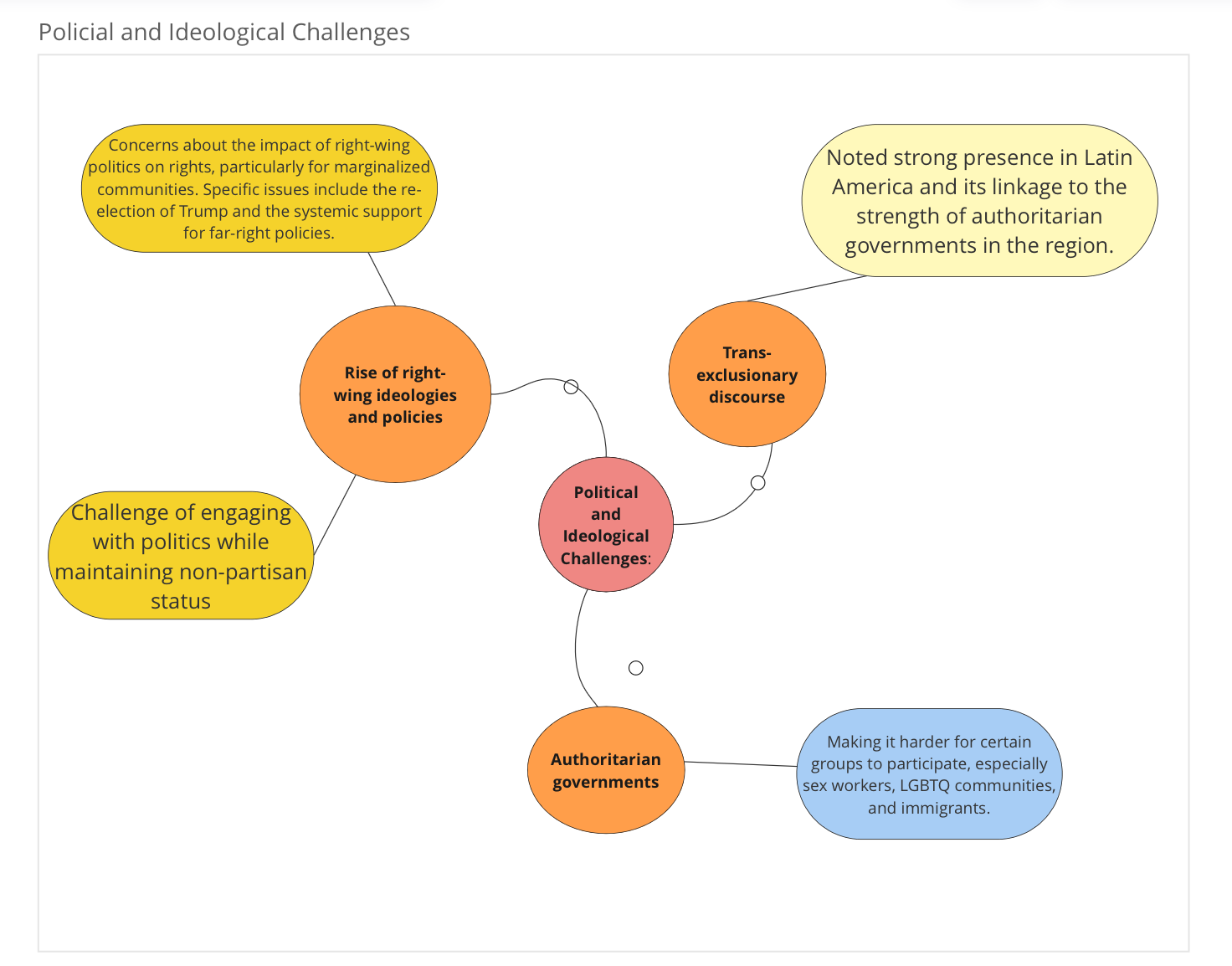
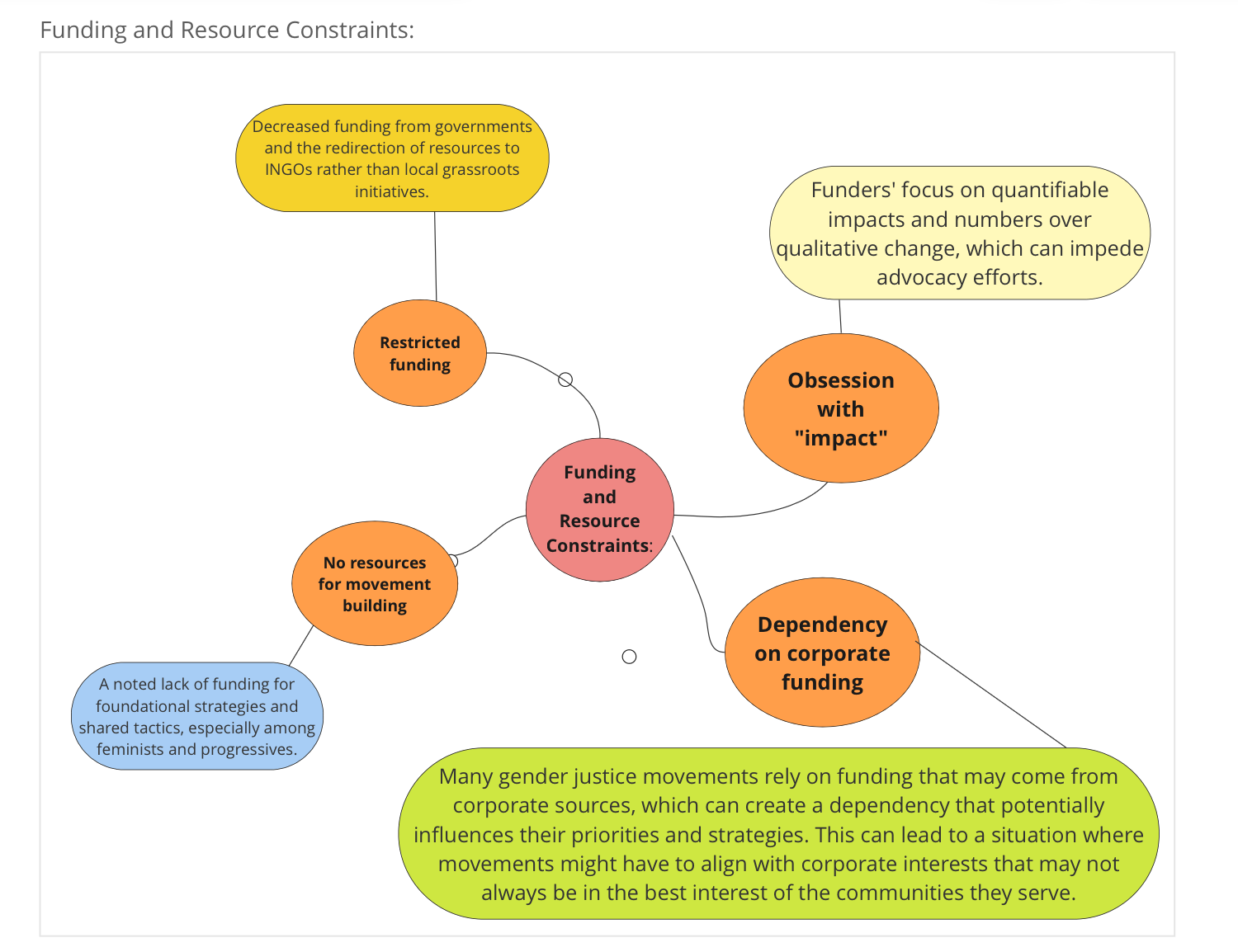
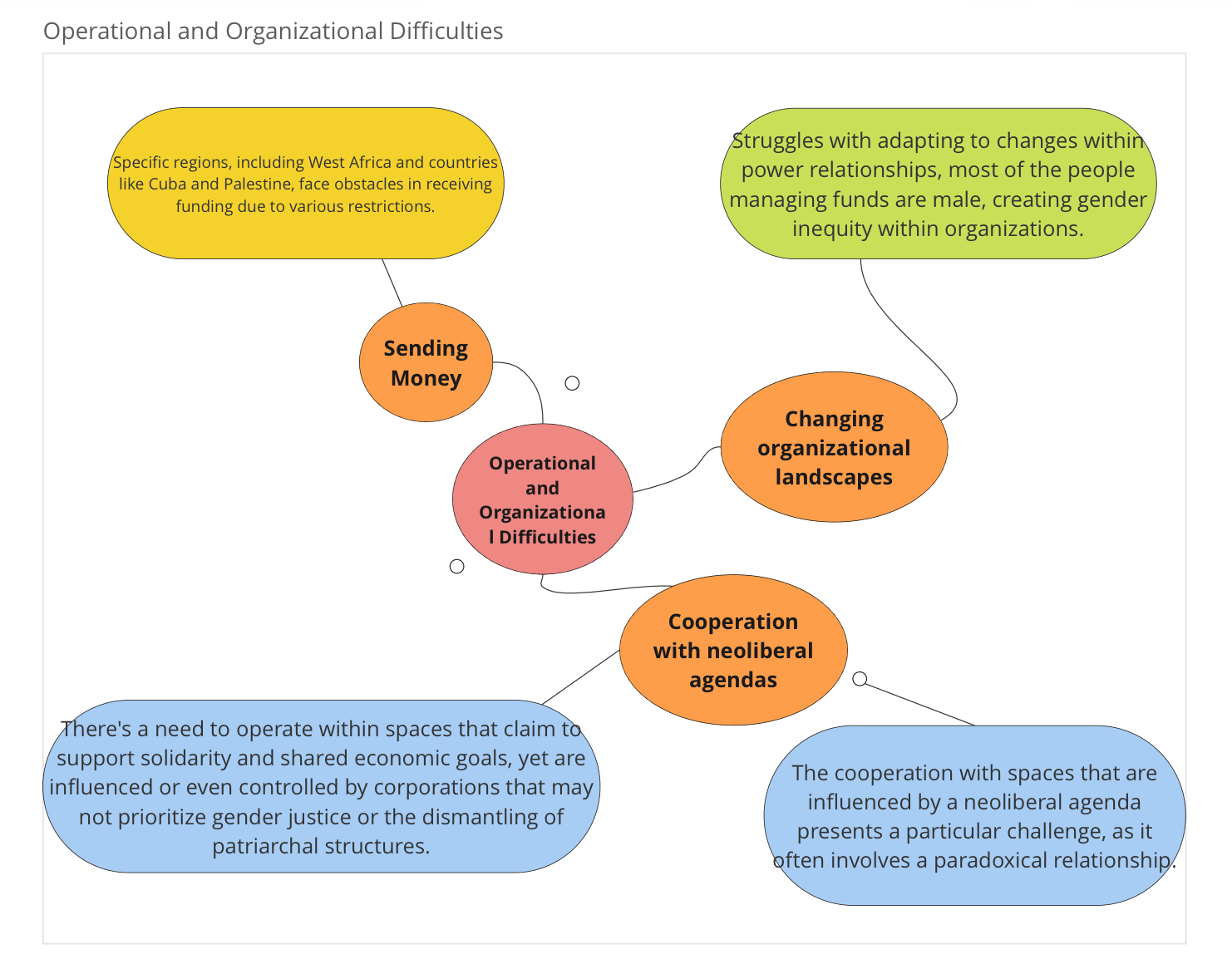
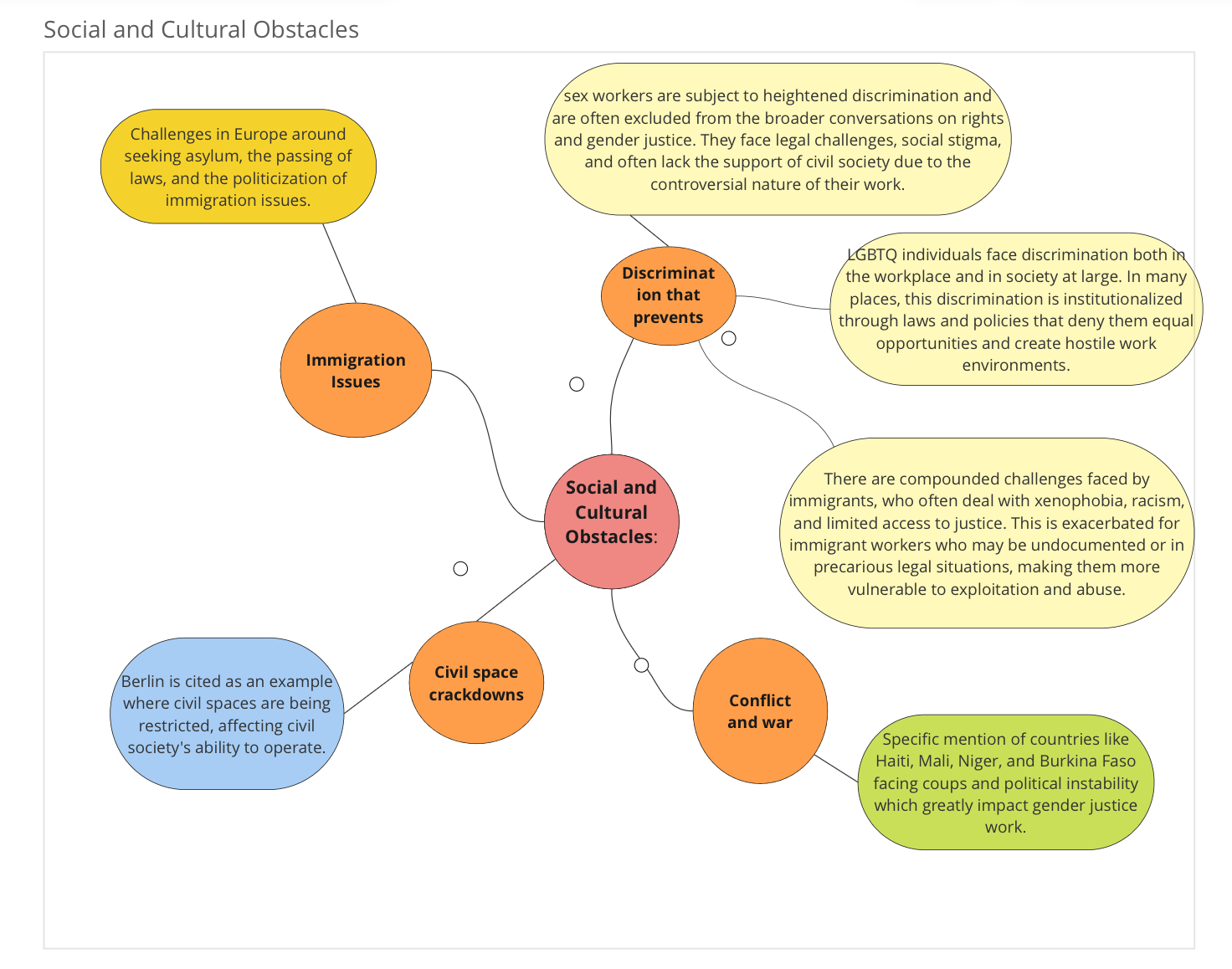
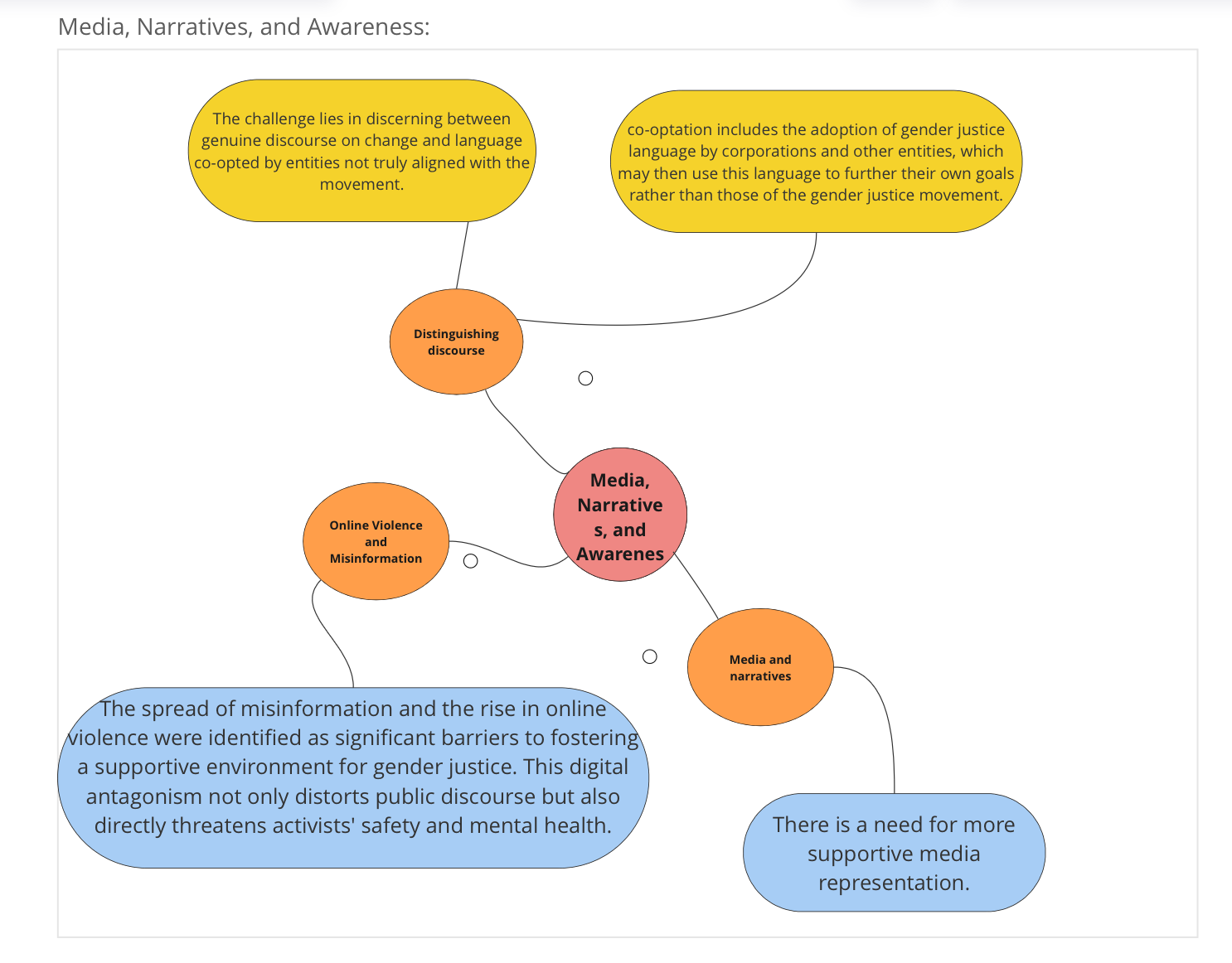
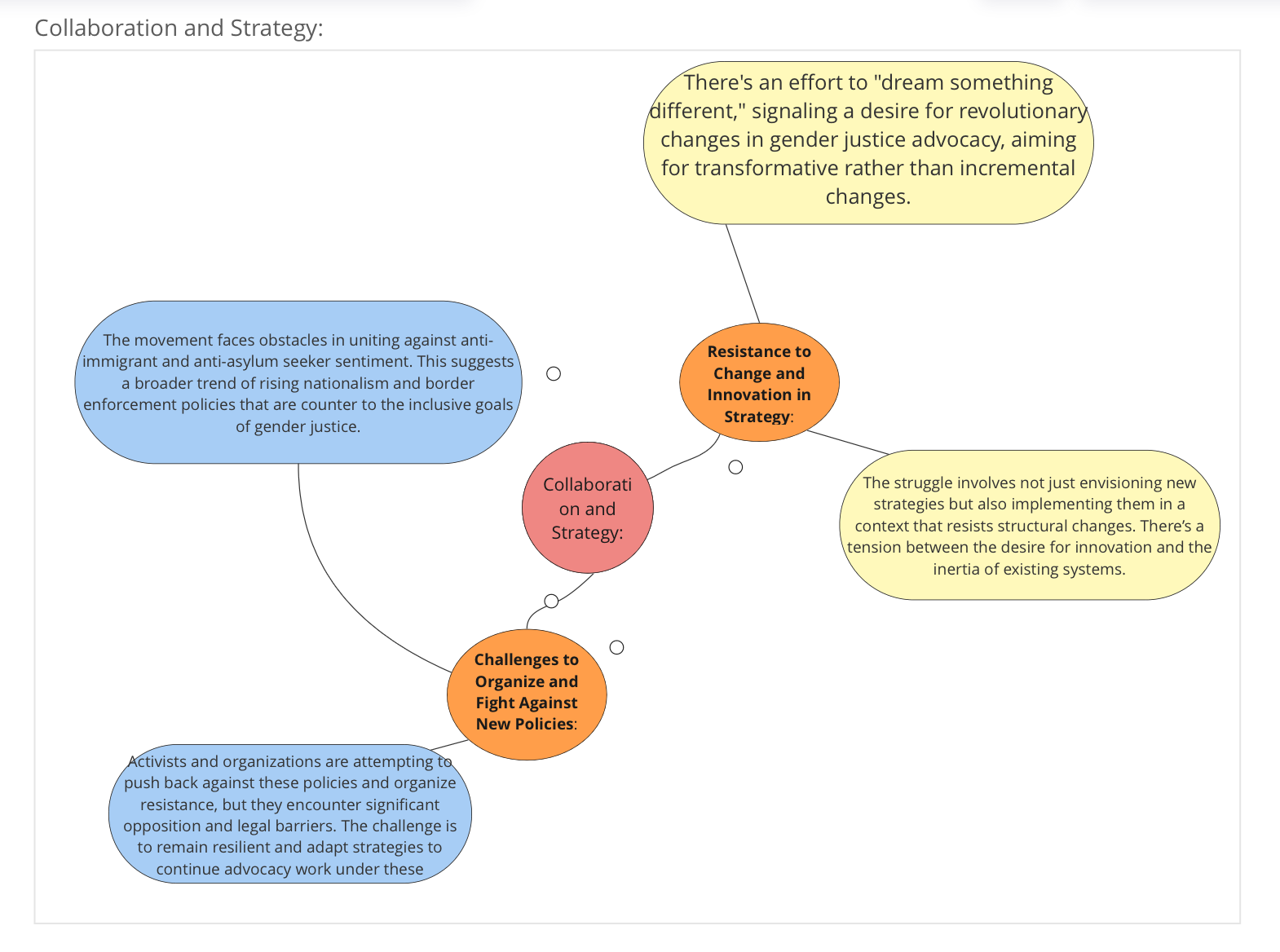
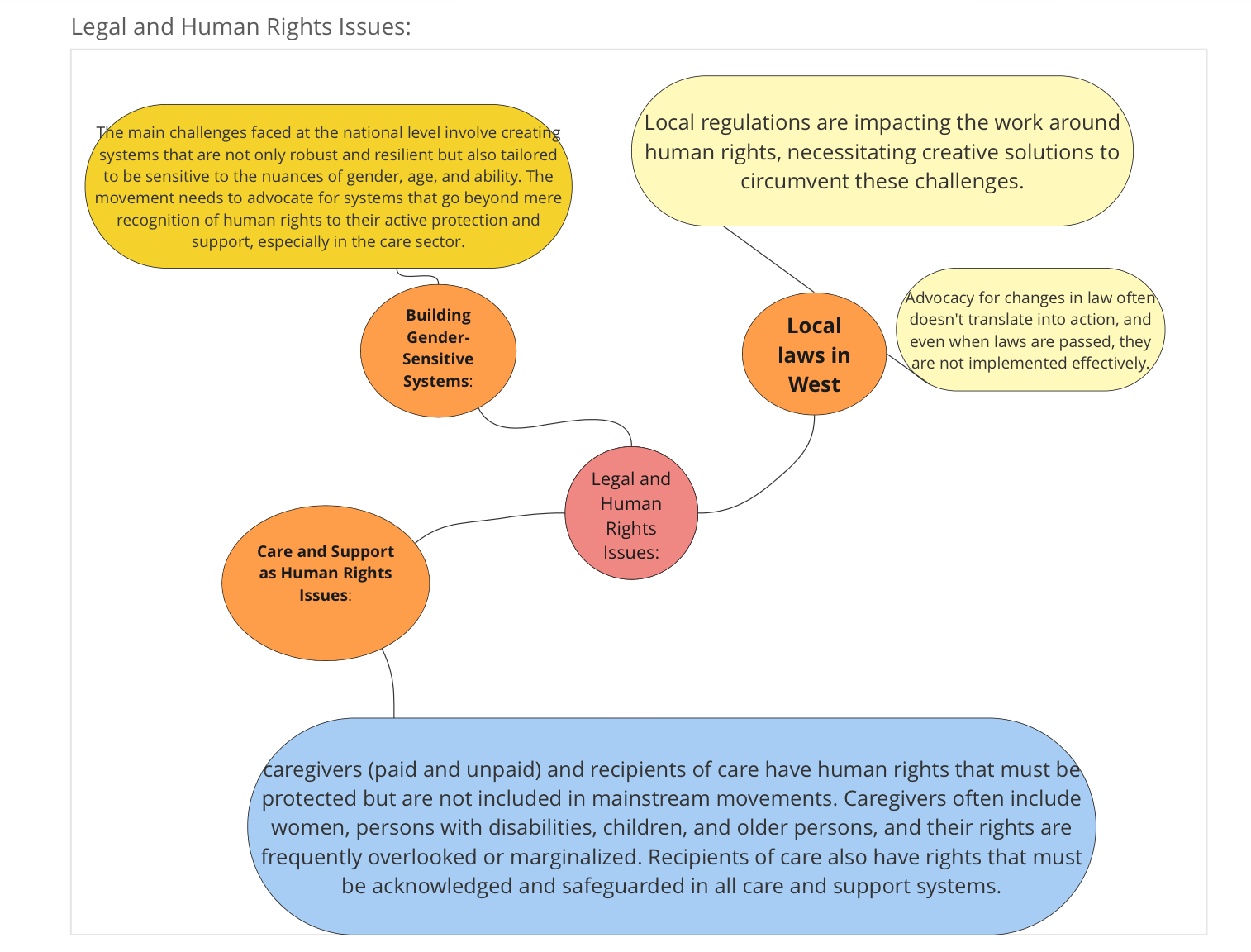
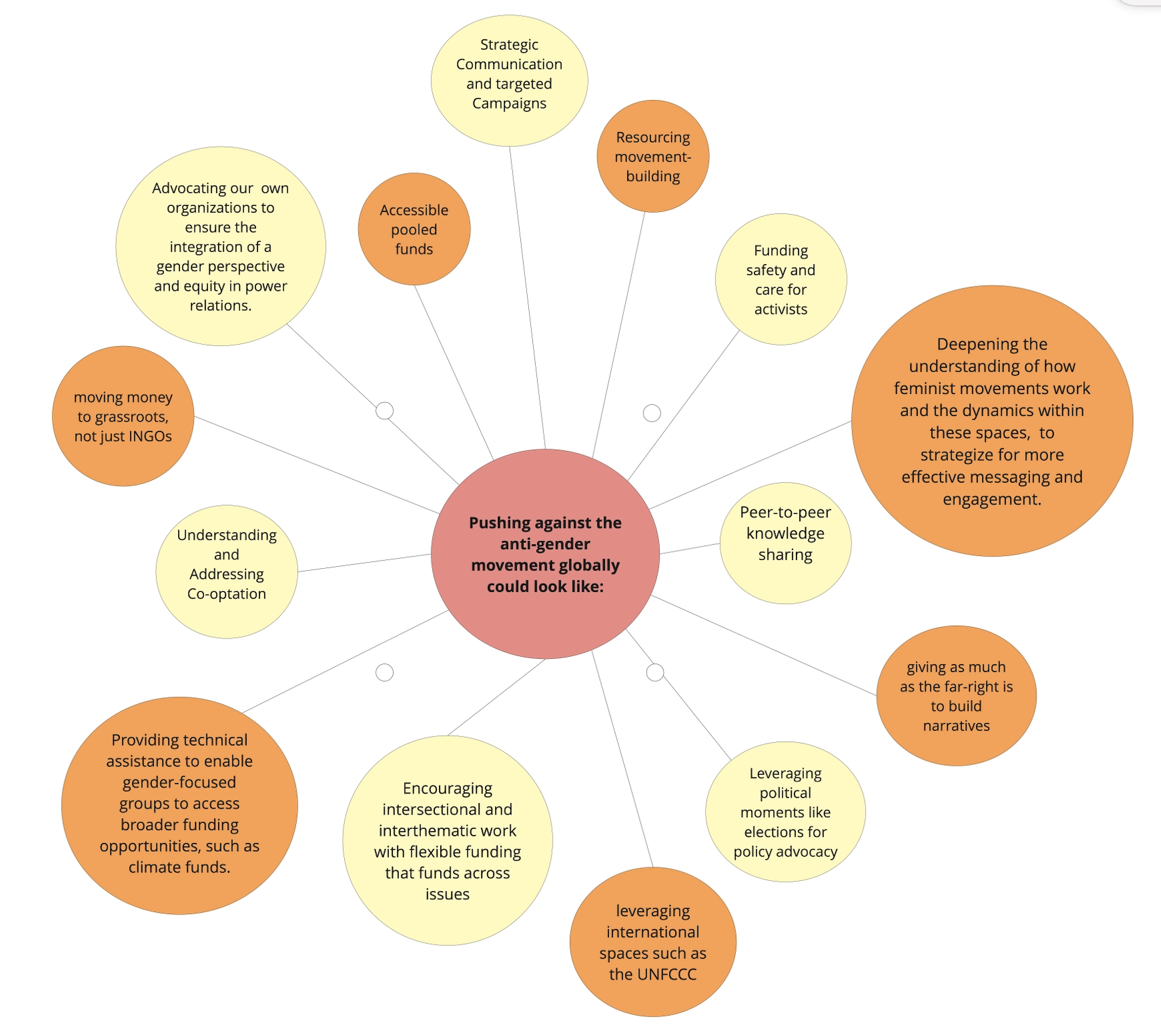

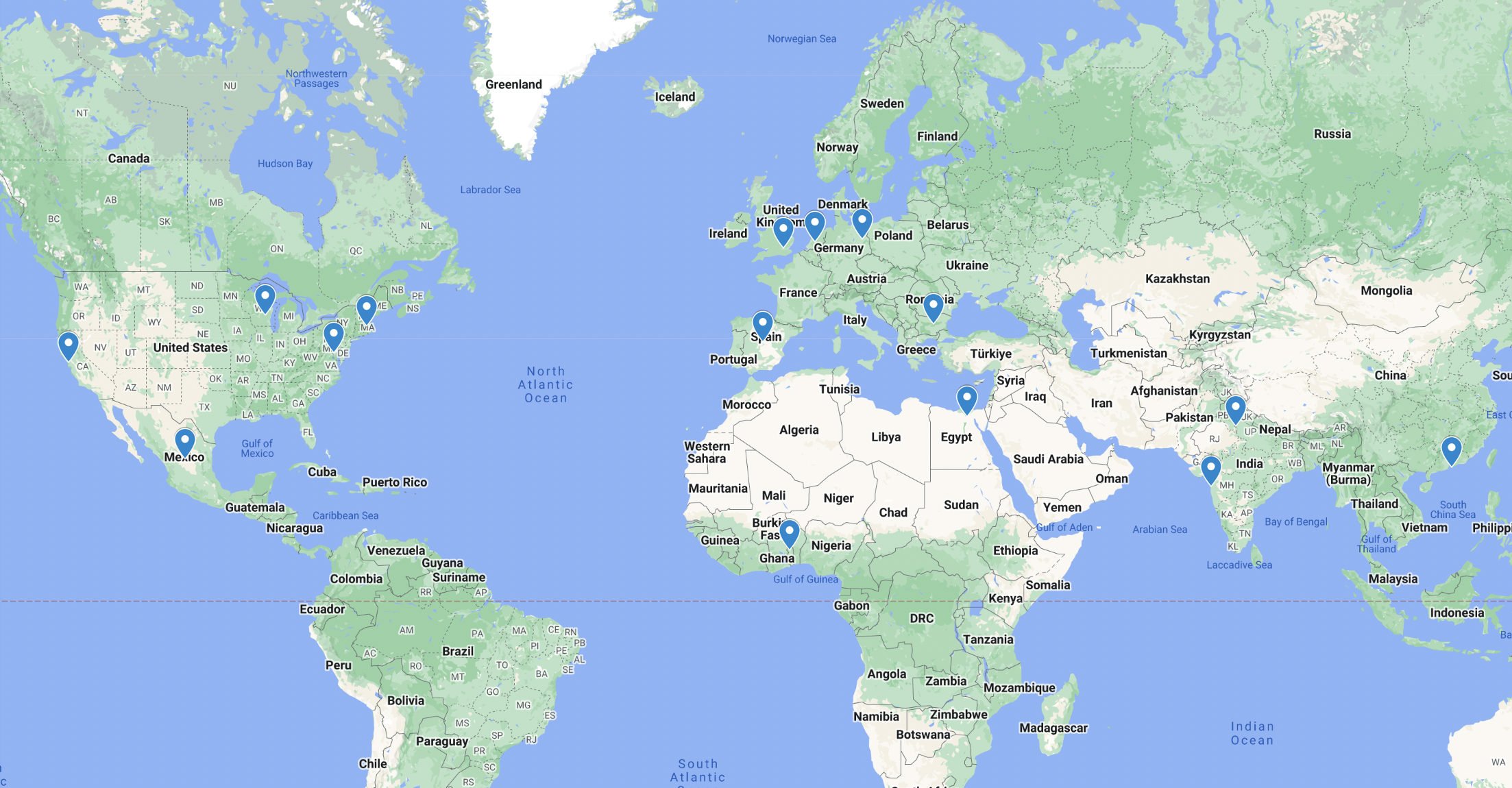





Leave a Reply